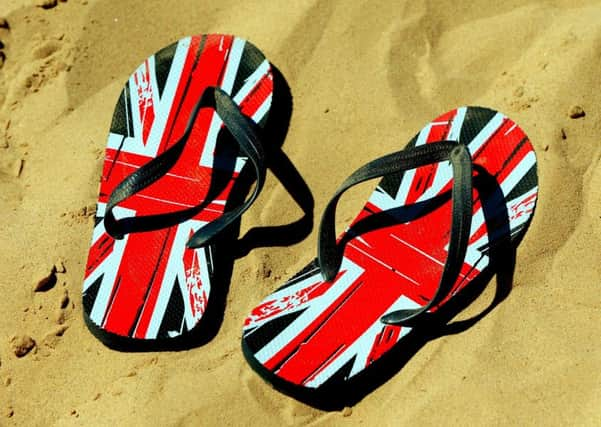William Wallace: Eurosceptics can forget dreams of fantasy island


Last year’s referendum campaign was fought more as a contest between the Conservative government and its own right wing than an informed national debate. The Leave campaign made a large number of promises about how easy it would be to leave.
Boris Johnson assured us that there was no question of our leaving the EU Single Market. Liam Fox promised that the negotiation to leave would be “one of the easiest in human history”, and that we would successfully negotiate trade deals with other major countries within two years.
Advertisement
Hide AdAdvertisement
Hide AdBehind them, Ukip campaigners said Britain was “shackled to a corpse” as the EU went into economic decline, and we could afford to cut our links with Europe. David Davis insisted that the German car manufacturers so wanted to keep open their access to the British market that they would persuade their government, and Brussels, to give us the concessions we want.
The Government is now struggling to reconcile these undeliverable promises with Britain’s long-term economic interests. Pressure from hard Eurosceptics has forced the Government to commit to leaving both the single market and the customs union – while calling nevertheless for “frictionless trade” across UK borders, and a “deep and special relationship” with the EU which looks remarkably like associate membership. But outside a customs union there have to be border checks, documents and inspections – in Dover, in Hull and across the Northern Irish border.
Much of the detail that is now coming out was already well-known within Whitehall. When the coalition government was formed in 2010, the Conservatives insisted on the Liberal Democrats agreeing to a detailed exercise on the “balance of competences” between the UK and the EU.
Some 32 reports were prepared over two years, with thousands of papers submitted by companies, trade associations, professional bodies and others. Conservative expectations that this would provide the evidence for demanding that powers be returned to Britain were confounded; the overall response, from transport to police co-operation, was that the current balance suited the UK well. So No 10 did its utmost to minimise publicity for the reports – for fear of upsetting its passionate Eurosceptics.
Advertisement
Hide AdAdvertisement
Hide AdHard negotiations have to grapple with the detail. Will British farmers still have access to European markets? Will protected designation for products like Wensleydale cheese continue? Will airlines like easyJet be able to operate across Europe if Britain leaves the regulatory framework that governs airline operations and safety? Will factories in Yorkshire that make parts that feed into cars assembled in Germany, or aircraft assembled in France, face delays and extra costs? Will the regulation of blood supplies be loosened as it returns to British control?
The Leave campaign promised a “bonfire of regulations”. But the Government’s Repeal Bill seeks instead to incorporate all existing EU regulations into British law – for the sound reason that markets don’t work without careful regulation. International trade and co-operation don’t work without a framework of international law, either; so the Government is trying to invent a new court to arbitrate disputes between the UK and the EU.
The Leave campaign successfully converted the issue of immigration into a European issue – even promising South Asian organisations that closing down European migrants would allow for more immigrants from India, Bangladesh and Pakistan. In reality, the majority of immigrants into Britain over recent decades have come from outside the EU; and the pressures of population growth and political instability across Africa and Asia make flows from other continents the greater challenge. And our Government isn’t even sure how these reach Britain; the Home Office has just admitted that half the ports round our coast are not regularly inspected by enforcement agencies.
Over the past year, the pound has dropped by over 15 per cent, encouraging more foreign companies to take over British firms. The Eurozone economy is growing much faster than Britain’s, while the Indians, Australians and others are talking of concessions they will demand in any future trade negotiations.
Advertisement
Hide AdAdvertisement
Hide AdMuch of the case put forward by the Leave campaign has turned out to be false, leaving the Government struggling to reconcile the “will of the people” with the long-term interests of the country.
The next 12 months will be tough. And the Eurosceptics are waiting to blame the EU, rather than their own fantasies, if the talks break down.
William Wallace is a Lib Dem peer and former minister.